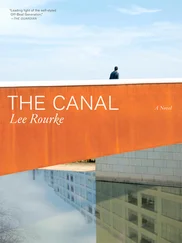But the moment we’d left Darwin, everything changed. Richard started to touch my shoulder or arm when we were talking. I would step back slightly when this happened and yet it continued. He wanted us to eat every meal together so we could discuss our supplies and the messages we received from the United Nations. Gradually he stopped talking about cooking pots and asked more personal questions. Did I sleep well last night? Did I like his shirt? Should he run for Parliament when he returned to Britain? In the past, when I had separated from men, I had taken another job and never seen them again. Now Richard was standing next to me and acting as if nothing had changed.
OUR SECOND NIGHT in the harbor, I asked Richard if I could borrow his phone to call Daniel. “Sure. Give it a try,” he said. “But for all we know they could still be in Australia. Maybe they never got on the plane.”
I dialed Daniel’s phone three times and kept getting a recording. There was no electrical power in East Timor and I decided that he was keeping his phone switched off to spare the battery. Early the next morning I called Laura, just to hear a friendly voice.
“I’ve become East Timor Central here in Islington,” she said. “I’m buying all the newspapers, listening to the radio, and watching television. There was a nice photo of Richard and you in the Telegraph . He’s pointing at a map of Timor and everyone’s staring at his finger. You seem a bit tired, but Richard looks good. His hair always has that little wave.”
“Nicky took the picture.”
“Yes. I saw his byline. Daniel sent out three articles from Dili. It does seem rather”—she paused for a second, trying not to sound worried—“rather difficult there.”
“The whole city is burning down.”
“Where’s Daniel?”
“I don’t know. Probably walking around Dili.”
“Where’s Richard?”
“On the ship with me.”
“God. And I thought I was the one who had complex relationships.”
“I’m here to do my job, Laura.” I tried to sound confident, as if the future was already planned. “I’ll hand out the food, Daniel will cover the story, and then we’ll go back to Italy.”
The Indonesian soldiers set fire to their barracks, then marched down the boulevard to the wharf. Using the binoculars, I watched them board the ferries and saw the deck crews cast off the lines. The soldiers waved their rifles and stomped their boots on the top decks of the ferries while their friends honked the horns of the stolen trucks. Then both ferries turned slowly in the water and headed north. The soldiers were taking their loot and going back to Indonesia.
Soon our radio started squawking with military commands and two navy ships pulled into the wharf. The Australians were running the operation, but they were under the command of the United Nations. Although the Timorese were starving, the military action had top priority and we were told that the Seria would be the last ship to dock. I wanted to get on the radio and yell at the Australians, but Richard ignored them and called UN headquarters in New York. He chatted with someone in the secretary-general’s office and got transferred to someone higher up in the organization. They discussed apartment rentals in Manhattan and ski holidays in Canada before Richard nudged the conversation around to East Timor.
“You know, we have a fair amount of supplies on our ship,” he said. “Lots of journalists are in Dili and they’re looking for a positive spin on the story. It would make the UN look good if we could reach the wharf fairly soon.”
Messages ricocheted back and forth between New York and Canberra, and suddenly we were allowed to jump the queue. Richard grinned like a football player who had just scored the winning goal. For a second, it looked like he was going to embrace me, but something in my expression kept him back. Instead, he placed his hands on my shoulders.
“Did you hear that? They’re going to let us dock.”
“That’s wonderful, Richard. You handled it perfectly.”
“Take a look around you.” He motioned to the ship and the crew and the supplies stacked on the deck. “All of this happened because the two of us were working together.”
“It’s not over yet. We’ve got the food. Now we’ve got to distribute it.”
The main wharf was on the right side of the bay, a concrete ledge built out on pilings. Although he looked hungover, Vanderhouten maneuvered the ship to the wharf with confidence and flair. Water surged from under the stern as the propellers went into reverse and the ship shuddered like a living thing. It looked as if we were about to smash into the concrete, but Vanderhouten spun the wheel around at the last moment and we drifted up against the wharf in perfect position. There were three buildings on the wharf that looked like warehouses. I saw a burned car and the rotting carcass of a dead pig and remembered Laura once asking me how I was able to deal with the sort of things I witnessed during relief work. I told her that it wasn’t Julia looking at the famine victims or the sick children; it was Dr. Cadell. Usually that protected me, but sometimes it was hard to play the role.
There was a short drop from the ship to the wharf. The crew jumped down and tied up the boat while Pak shouted directions. I told Vanderhouten to get ready to unload the supplies and left the ship. Not knowing what do, I walked toward the warehouses, then Billy caught up with me. He was wearing a flack jacket and carrying an assault rifle.
“Be careful, Julia. We don’t know what’s going on.”
“That’s right, Billy. So don’t run around pointing that rifle at people.”
We went down a concrete ramp to a tarmac area where there were stacks of shipping containers, all of them torn open and looted. The wharf was surrounded by a fence topped with barbed wire, but the entrance gate was wide open. I stepped around an abandoned refrigerator and looked down the street. Australian soldiers were on patrol, moving toward the Governor’s Office, but there were a few civilians, too. From a distance, I could see only the color of their clothes—a bright green shirt or a red shawl—but as they came closer I saw the faces of frightened women and children and crippled old men. Somehow they knew our ship was carrying food and water and this knowledge passed between them like a magnetic force, pulling them forward.
I HURRIED BACK to the ship and told the crew to place four cargo containers on the wharf. Using rope, I marked off the evaluation and distribution areas, and within minutes, the first people arrived. I greeted them in Tetum and tried to see if anyone was seriously ill. The first group was strong enough to walk to the harbor, but most of them were suffering from malnutrition and dehydration. I took their names, marked their arms with a red felt pen and Richard distributed packets of supplies: a cooking pot, a spoon, three water bottles, a sack of cornmeal and a sack of rice, a bottle of cooking oil, and a length of blue plastic sheeting. Using some phrases from a Portuguese travel book, Richard told everyone he was muito prazer , glad to meet them. The Timorese were cautious and polite with me, but everyone smiled at Richard. I was evaluating them and he was giving out food.
The first group left the wharf area and spread the word throughout Dili; within hours, thousands of people were heading toward us. We needed extra help and I wandered through the crowd, hiring a young woman who had once worked for the Red Cross, another who was a Jehovah’s Witness, and a schoolteacher who knew the island languages. Some young men introduced themselves as freedom fighters and suggested they be in charge. I looked at the people standing around them and I sensed their fear. Não necessário , I said and kept moving.
Читать дальше












